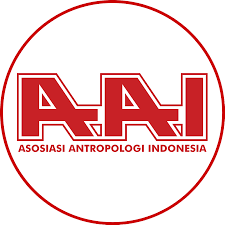Modernization of Hydroponic Agriculture in the Beta Maca Farming Women's Group, Babakan Village
Keywords:
Hydroponics, Modern Agriculture, Technology AdoptionAbstract
The crisis affecting Indonesia's agricultural sector, exacerbated by the COVID-19 pandemic and climate change, has underscored the need for innovation to sustain productivity and farmer welfare. This study aims to explore the role of hydroponic technology adoption in modernizing agriculture within the Women's Farming Group (KWT) Beta Maca in Babakan Village, using Everett Rogers' diffusion of innovation theory as the analytical framework. A qualitative approach was employed through in-depth interviews and participatory observations involving the leader, founder, and members of KWT. The findings indicate that the technology adoption process in KWT Beta Maca follows five key stages: initial knowledge, persuasion through outreach, decision-making, implementation of hydroponic practices, and confirmation of outcomes. Government-provided financial support and training proved to be crucial catalysts in this transition. Despite challenges such as skill adaptation and extreme weather conditions, hydroponic technology has demonstrated significant benefits in resource efficiency and increased income. In conclusion, the adoption of hydroponics in KWT Beta Maca not only enhanced productivity but also strengthened the economic well-being of farmers, proving that technology-based agricultural modernization can foster resilience and broader economic opportunities.
References
Handayani, F. (2018). Pelatihan Budidaya Sayur Organik dan Tanaman Herbal Organik Berbasis Teknik Hidroponik. 2.
Mulyani, S. I., & Sofea, S. (2020). Tingkat Adopsi Petani Hidroponik Mendukung Agropolitan di Kota Tarakan (Studi Kasus Di Kecamatan Tarakan Tengah). Jurnal Borneo Saintek, 3(2), 79–83. https://doi.org/10.35334/borneo_saintek.v3i2.1673
Edwards, T., Delbridge, R., & Munday, M. (2005). Understanding innovation in small and medium-sized enterprises: a process manifest. Technovation, 25, 1119-1127. https://doi.org/10.1016/J.TECHNOVATION.2004.04.005.
Fauzi, N. F. (2018). Potensi dan strategi pengembangan pertanian pada kelompok tani Sumber Klopo I. Jurnal Agribest, 2(2), 159-177.
Malhi GS, Kaur M, Kaushik P. 2021. Impact of Climate Change on Agriculture and Its Mitigation Strategies: A Review. Sustainability.13(3):1318. https://doi.org/10.3390/su13031318
Mappasere, S. A., & Suyuti, N. (2019). Pengertian Penelitian Pendekatan Kualitatif. Metode Penelitian Sosial, 33.
Maulana et al. 2023. Implementasi Hidroponik Sebagai Bentuk Pertanian Modern Guna Meningkatkan Ketahanan Pangan di Desa Musir Lor. JURNAL PENGABDIAN MASYARAKAT INDONESIA (2023). https://doi.org/10.55606/jpmi.v2i2.1853.
Musyaffa, N., Myarta, L., Paksi, A., & Iswari, R. (2023). The Agricultural Sector in Indonesia Amidst COVID-19: Crisis or Opportunity?. E3S Web of Conferences. https://doi.org/10.1051/e3sconf/202344402054.
Rijali, A. (2018). Analisis data kualitatif. Alhadharah: Jurnal Ilmu Dakwah, 17(33), 81-95. https://doi.org/10.18592/alhadharah.v17i33.2374
Schiffman, L.G., & Kanuk, L.L. (2010). Consumer Behaviour (10th ed). New Jersey, Pearson Prentice Hall.










